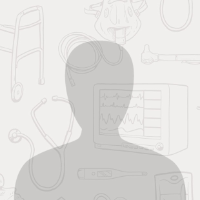Contact Hours 1.00
CERP A 1.00
Expires Oct 10, 2026
Topics: Cardiovascular, Pulmonary, COVID-19
Population: Adult
Role: Staff
Member: Free
NonMember: $10.00
Resources
Webinar Series WB0058
Part of AACN Critical Care Webinar Series
Presenter(s): Michael G Petty, PhD, RN, APRN, ACNS-BC, CCNS
Contact Hours 1.00
CERP A 1.00
Expires Oct 10, 2026
Topics: Cardiovascular, Pulmonary, COVID-19
Population: Adult
Role: Staff
Resources

Michael G Petty, PhD, RN, APRN, ACNS-BC, CCNS
Michael Petty, a cardiothoracic and solid organ transplant clinical nurse specialist at University of Minnesota Health, has more than 35 years of critical care nursing experience. Much of his focus and interest during that time has been in the care of patients with cardiovascular disorders requiring medical, surgical and/or transplant interventions. In his current CNS role, Petty supports nurses and healthcare team members caring for patients on extracorporeal life support (ECLS) by providing education, clinical consultation, and order set development/modification and policies to promote best practice. He has participated in a heart transplant-related clinical trial funded through the National Institutes of Health and received the American Heart Association’s Heart and Stroke Hero Award for Medical Professionals (2015).
Learners must complete the entire activity and the associated evaluation to be awarded contact hours AND read Implicit Bias impacts patient outcomes. No partial credit will be awarded.
Accreditation
The American Association of Critical-Care Nurses is accredited as a provider of nursing continuing professional development by the American Nurses Credentialing Center's Commission on Accreditation.
Provider approved by the California Board of Registered Nursing, Provider number CEP 1036, for 1.00 contact hours.
DisclosureAny relevant relationship between an ineligible company and an individual with the ability to influence clinical content will be identified by the Nurse Planner within the activity. Any relevant relationship between an ineligible company and an individual with the ability to influence clinical content has been mitigated.
Accreditation refers to recognition of continuing education only and does not imply AACN, ANCC, or CBRN approval or endorsement of any commercial products discussed or displayed in conjunction with this educational activity.
Activities with pharmacology hours are to assist the APRN in fulfilling the pharmacotherapeutic education requirements for licensure and certification renewals.
Activities meet the standards for most states that require mandatory continuing education for license and/or certification renewal. AACN recommends consulting with your own state board of nursing or credentialing organization before submitting your certificate of completion.Continuing Education Activities are nonrefundable.